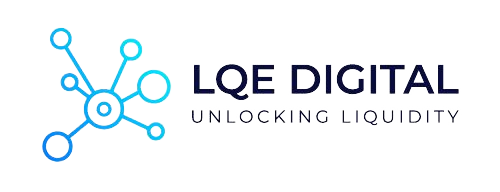FAQs
Frequently Asked Questions
Some context and insight into Tokenization.
What is asset tokenization?
Asset tokenization converts real-world assets (e.g., real estate, stocks) into digital tokens on a blockchain. These tokens represent ownership or fractions of the assets, enabling easy trading, fractional ownership, and increased accessibility. It aims to democratize investments and streamline asset trading using blockchain technology.
How does tokenization improve liquidity?
Asset tokenization converts real-world assets (e.g., real estate, stocks) into digital tokens on a blockchain. These tokens represent ownership or fractions of the assets, enabling easy trading, fractional ownership, and increased accessibility. It aims to democratize investments and streamline asset trading using blockchain technology.
How secure is the custody of tokenized assets?
Asset tokenization converts real-world assets (e.g., real estate, stocks) into digital tokens on a blockchain. These tokens represent ownership or fractions of the assets, enabling easy trading, fractional ownership, and increased accessibility. It aims to democratize investments and streamline asset trading using blockchain technology.
Are there any regulatory considerations for tokenized assets?
Asset tokenization converts real-world assets (e.g., real estate, stocks) into digital tokens on a blockchain. These tokens represent ownership or fractions of the assets, enabling easy trading, fractional ownership, and increased accessibility. It aims to democratize investments and streamline asset trading using blockchain technology.
What is the process of buying and selling tokenized assets?
Asset tokenization converts real-world assets (e.g., real estate, stocks) into digital tokens on a blockchain. These tokens represent ownership or fractions of the assets, enabling easy trading, fractional ownership, and increased accessibility. It aims to democratize investments and streamline asset trading using blockchain technology.
What are the benefits of multi-asset trading?
Asset tokenization converts real-world assets (e.g., real estate, stocks) into digital tokens on a blockchain. These tokens represent ownership or fractions of the assets, enabling easy trading, fractional ownership, and increased accessibility. It aims to democratize investments and streamline asset trading using blockchain technology.
How does tokenization impact the valuation of assets?
Asset tokenization converts real-world assets (e.g., real estate, stocks) into digital tokens on a blockchain. These tokens represent ownership or fractions of the assets, enabling easy trading, fractional ownership, and increased accessibility. It aims to democratize investments and streamline asset trading using blockchain technology.
Can any type of asset be tokenized?
Asset tokenization converts real-world assets (e.g., real estate, stocks) into digital tokens on a blockchain. These tokens represent ownership or fractions of the assets, enabling easy trading, fractional ownership, and increased accessibility. It aims to democratize investments and streamline asset trading using blockchain technology.
Can I trade tokenized assets on traditional exchanges?
Asset tokenization converts real-world assets (e.g., real estate, stocks) into digital tokens on a blockchain. These tokens represent ownership or fractions of the assets, enabling easy trading, fractional ownership, and increased accessibility. It aims to democratize investments and streamline asset trading using blockchain technology.
What is the difference between tokenization and traditional asset ownership?
Asset tokenization converts real-world assets (e.g., real estate, stocks) into digital tokens on a blockchain. These tokens represent ownership or fractions of the assets, enabling easy trading, fractional ownership, and increased accessibility. It aims to democratize investments and streamline asset trading using blockchain technology.


